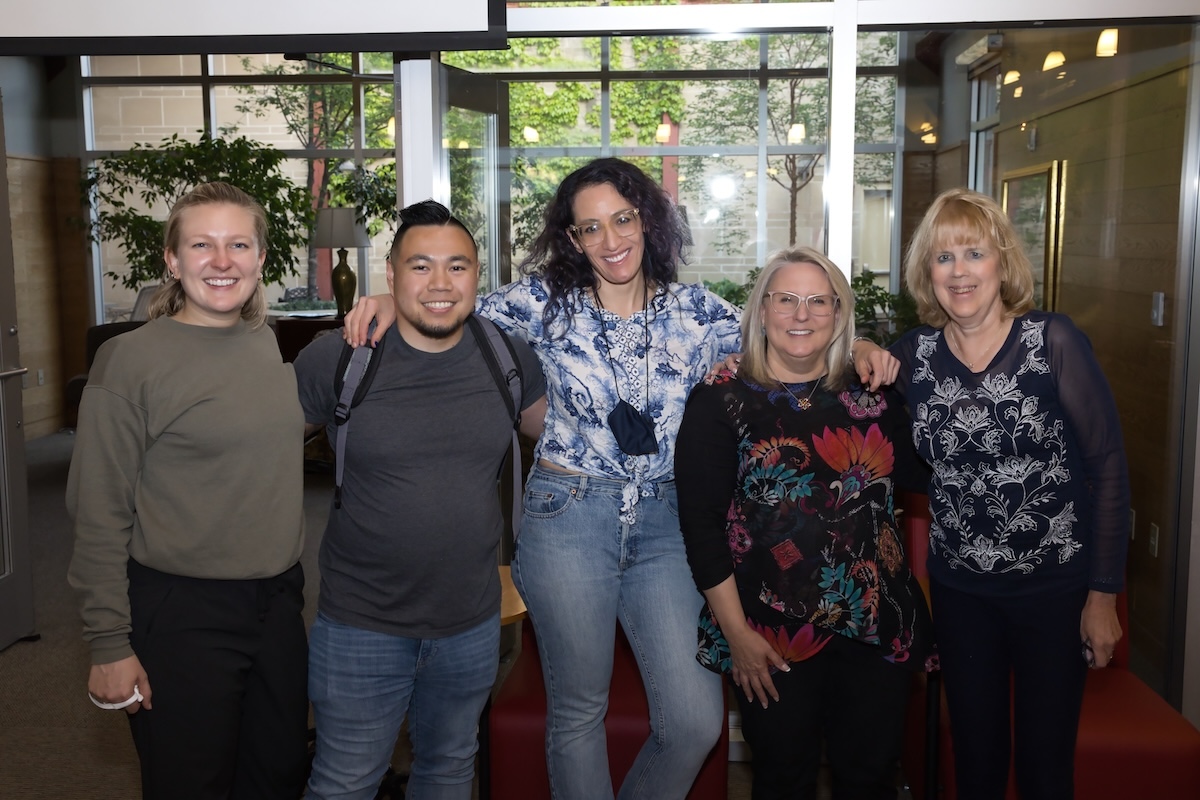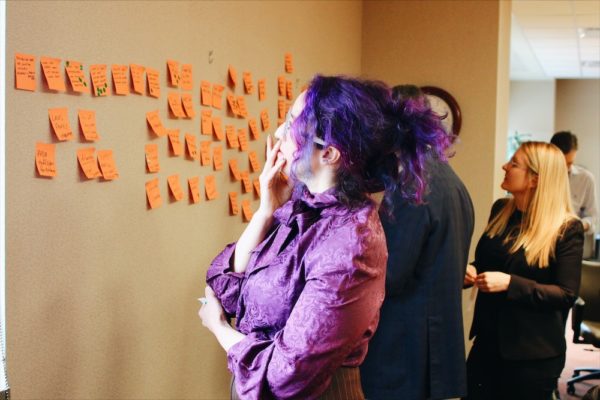This time last year, Heny Inc. was a startup gaining notice for its mission to empower patients by allowing them to track their biosamples via app.
This mission matters because when patients participate in research studies, their names and identifying features are taken off of their samples. While this is done in the name of confidentiality, a major tradeoff noted by University of Pittsburgh researcher Marielle Gross, CEO and founder of the company, is that should doctors discover something in a patient’s sample that’s relevant to their long-term health, they have no way of being informed.
This creates a situation where researchers can learn from patients’ samples, but patients could go years without being aware of illnesses or genetic markers for future diseases, per Gross.
“Functionally, what that means is that a whole swath of our population is essentially exploited by this process with no hope of really ever achieving access to the best, or the most cutting-edge therapies,” she told Technical.ly in September 2022.
One year later, with a successful pilot program completed, early customers, RealLIST Startups recognition and a new name — de-bi — Gross said this month that the company is continuing to use technology to protect patients’ rights.
The new name reflects that the company’s focus is “decentralized biobanking.” Gross said she and her colleagues felt it was important to center individuals deserving to own their biosamples in the company’s name.

Marielle Gross (center) at a de-bi event at Cancer Bridges in May 2023 with core de-bi team members Amelia Hood and William Sanchez, plus Cancer Bridges’ Jen Kehm and Glock Foundation’s Carol Glock. (Courtesy de-bi)
In fall 2022, the company launched a pilot program to enable breast cancer patients to track and learn about research on their donated tumor and tissues. Looking back, Gross said the pilot was a success and reports that one participant in particular was able to catch an aggressive tumor early. Participants’ reaction during the pilot showed the founder that there’s a desire for such technology to be available.
“In two months, over a thousand people signed up to find out what happened to the tumors and other samples they donated for research,” Gross said. “That’s tremendous patient engagement.”
Working with de-bi reminded at least one patient of Henrietta Lacks, whose cancerous cells were removed by Johns Hopkins doctors in the 1950s to use for medical research before her death. The cells have since been cloned countless times and used for the development of medical breakthroughs such as vaccines and genetic mapping. However, her family and descendants did not receive compensation for the use of Lacks’ cells, and in 2021, her estate sued for the nonconsensual use of the cells.
“It’s as though I get to step into Henrietta Lacks’ body, walk into a lab somewhere, put my hand on the shoulder of somebody in a white coat, bent over a dish looking at my cells, trying to figure something out,” the patient said in a video testimonial. “… I can see what’s happening. It makes you feel like you’re not alone — because we’re not.”
Since then, de-bi has also acquired a handful of pilot customers. (Gross didn’t share their names.) Gross said this allows the company to continue self-funding, thus preventing the need to fundraise in the short term.
For the time being, de-bi’s focus is on perfecting the technology and absorbing feedback from its existing users.
“We’re early stage and we have this incredibly complex space to be able to provide a sustainable and scalable solution. So we need a solution that’s not going to just work for this case or that case, it has to be able to work for all scientists, for all patients — not just for cancer, but even taking on cancer,” Gross said. “The goal here is that the sum of this group of pilots over the next year or so will really be the direction, the roadmap, to the product that we will then make [more widely] available.”
De-bi has also added team members in the past year. As of 2022, the core team beyond Gross included Dr. Adrian Lee, director of Pitt and UPMC’s Institute for Precision Medicine; Dr. Jeff Kahn, director of the Berman Institute; Dr. Robert Miller, who leads the design of clinical trials for the Mayo Clinic Proton Beam Therapy Program; and Dr. Mario Macis, an economist at Johns Hopkins Carey School of Business. While Lee is no longer involved with the project, many of the original players remain. de-bi has also expanded to include new members to its advisory board, as well as including individuals with expertise in anthropology, labor justice and medicine on staff.
Ultimately, Gross said, every step de-bi has taken over the past year, and continues to take, is done in the hope of changing the culture in medicine into one where patients’ aren’t kept in the dark about information that could be life saving.
“Patients have a right to know what happens to their bodies,” she said, “and this is really fundamentally about patient’s rights. And it’s a matter of structural and social justice as much as it is a matter of health.”
Atiya Irvin-Mitchell is a 2022-2024 corps member for Report for America, an initiative of The Groundtruth Project that pairs young journalists with local newsrooms. This position is supported by the Heinz Endowments.Before you go...
Please consider supporting Technical.ly to keep our independent journalism strong. Unlike most business-focused media outlets, we don’t have a paywall. Instead, we count on your personal and organizational support.
3 ways to support our work:- Contribute to the Journalism Fund. Charitable giving ensures our information remains free and accessible for residents to discover workforce programs and entrepreneurship pathways. This includes philanthropic grants and individual tax-deductible donations from readers like you.
- Use our Preferred Partners. Our directory of vetted providers offers high-quality recommendations for services our readers need, and each referral supports our journalism.
- Use our services. If you need entrepreneurs and tech leaders to buy your services, are seeking technologists to hire or want more professionals to know about your ecosystem, Technical.ly has the biggest and most engaged audience in the mid-Atlantic. We help companies tell their stories and answer big questions to meet and serve our community.
Join our growing Slack community
Join 5,000 tech professionals and entrepreneurs in our community Slack today!

The person charged in the UnitedHealthcare CEO shooting had a ton of tech connections

From rejection to innovation: How I built a tool to beat AI hiring algorithms at their own game

Where are the country’s most vibrant tech and startup communities?




